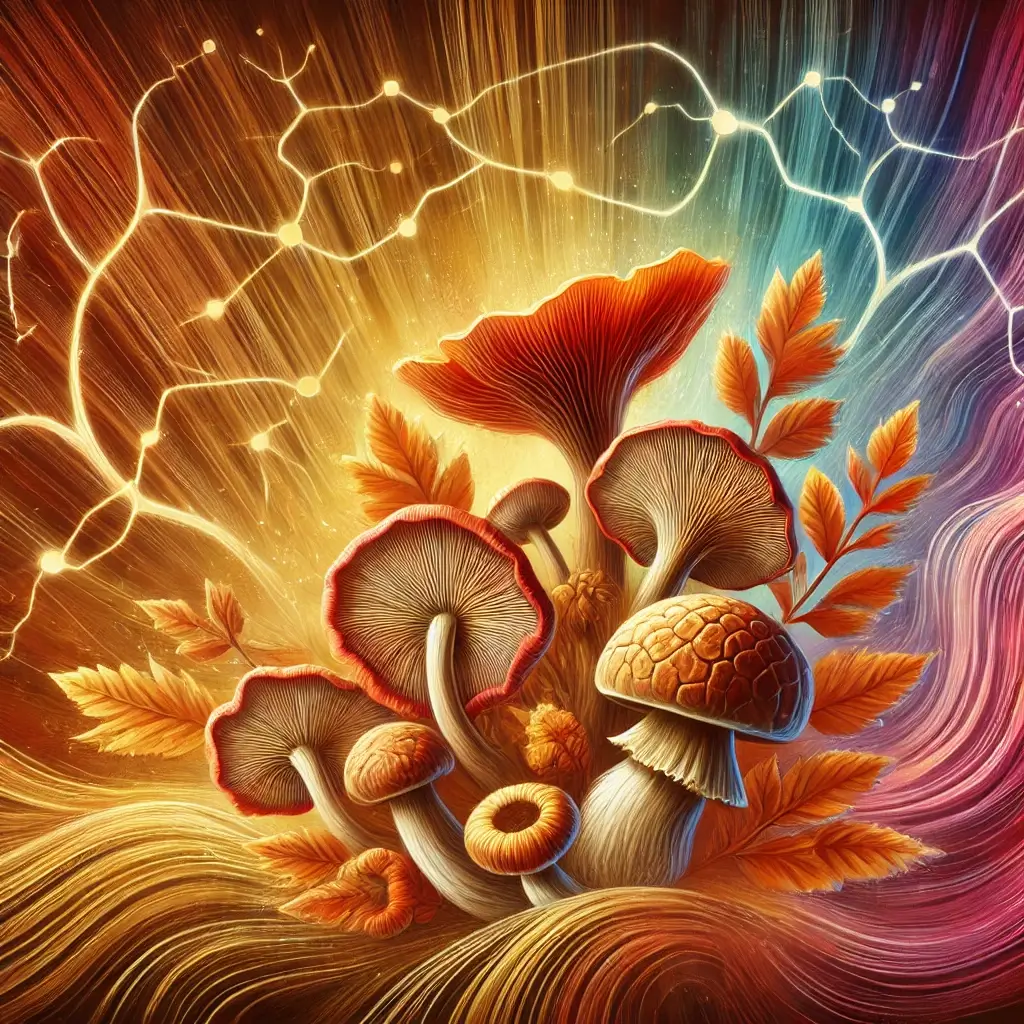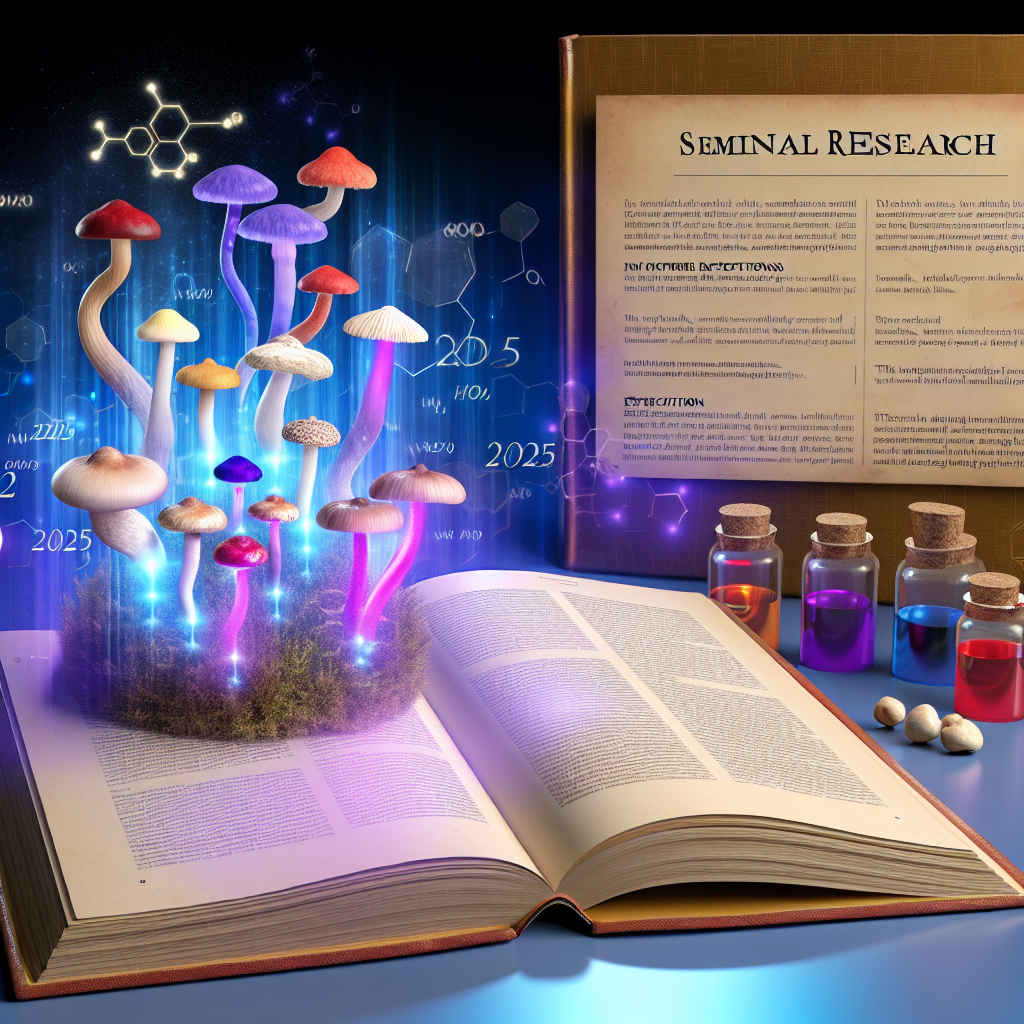Understanding Your Body’s Command Center
The nervous system is a complex network of nerves, cells, and tissues that work together to coordinate and control body activities. It transmits information from the brain to other regions of the body, allowing us to move, think, feel, and respond to our surroundings. As a result, the health of our nervous system is critical to our entire well-being.
Move Your Body, Strengthen Your Mind
There are various techniques to keep your nervous system healthy. Regular exercise is one of the most vital. Physical exercise not only strengthens your muscles and bones, but it also increases blood flow to your brain and nervous system, increasing their function and lowering your risk of age-related deterioration.
Mushroom Medicine for Neural Health
Medicinal mushrooms can help you keep your nervous system healthy, which is important for your general well-being. The nervous system is in charge of sending impulses throughout the body, which allows us to move, feel, and think. It also helps to regulate our emotions, sleep, and hunger.
Powerful Compounds That Nurture Nerves
Medicinal mushrooms include a number of chemicals that can aid in nervous system support, including:
Beta-glucans: A form of carbohydrate that has been found to protect nerve cells from injury.
Polysaccharides are another form of carbohydrate that has been found to enhance nerve cell development and repair.
Triterpenes: Triterpenes are a kind of plant chemical with anti-inflammatory and neuroprotective effects.
Hericenones are a kind of chemical found in lion’s mane mushrooms that has been demonstrated to enhance nerve cell development and repair.
Nature’s Neural Allies: Top Mushrooms for Brain Health
The following are some of the most common medicinal mushrooms for nervous system support:
Lion’s mane mushroom: Lion’s mane mushroom has been shown to increase cognitive function and memory. It has also been demonstrated to help the neurological system and encourage nerve cell development and healing.
Reishi mushroom: Reishi mushroom has adaptogenic characteristics, which means it can assist the body cope with stress. Reishi mushroom has also been demonstrated to help with nervous system support and relaxation.
Chaga fungus is well-known for its strong antioxidant content. Chaga mushroom has also been demonstrated to help the neurological system and protect nerve cells.
Cordyceps mushroom is well-known for its potential to boost athletic performance and endurance. Cordyceps mushroom has also been demonstrated to benefit the neurological system and protect nerve cells.
Capsules, powders, teas, and extracts are some of the ways medicinal mushrooms can be eaten. They can also be mixed into meals and beverages.
Fuel Your Brain with the Right Foods
A healthy diet is another important aspect in nervous system health. Eating a range of nutrient-dense foods, such as fruits, vegetables, whole grains, lean proteins, and healthy fats, supplies your body with the vitamins, minerals, and antioxidants it requires to promote nerve function while also preventing inflammation and oxidative stress.
Relaxation: Your Nervous System’s Best Friend
Rest and stress management are equally important for nervous system health. Chronic stress can produce nerve cell inflammation and damage, leading to cognitive impairment, mood disorders, and other health issues. As a result, it’s critical to discover ways to unwind and relax, whether via meditation, yoga, or simply spending time in nature.
Protecting Your Neural Network from Harm
Finally, abstaining from dangerous substances such as alcohol, tobacco, and narcotics can assist safeguard your nervous system. These drugs have the potential to disrupt neuron function, resulting in reduced cognition, memory loss, and other neurological diseases.
A Holistic Approach to Neural Wellness
To summarize, the health of your nervous system is critical to your entire well-being. You can support your nerve function and maintain optimal health throughout your life by exercising frequently, eating a balanced diet, getting adequate rest, controlling stress, and avoiding dangerous drugs.
Safety First: Consult Healthcare Professionals
It is important to see your doctor before consuming medicinal mushrooms for nervous system support. Because medicinal mushrooms might interact with certain drugs, it is critical to be informed of the dangers and advantages before using them.
References and Further Reading
1. Friedman M. (2016). Mushrooms as sources of natural antioxidants. Molecules, 21(4), 530.
2. Mori K., et al. (2009). Improving effects of the mushroom Yamabushitake (Hericium erinaceus) on mild cognitive impairment: a double-blind placebo-controlled clinical trial. Phytotherapy Research, 23(3), 367-372.
3. Spelman K., et al. (2017). Neurological activity of lion’s mane (Hericium erinaceus). Journal of Restorative Medicine, 6(1), 19-26.
4. Wachtel-Galor S., et al. (2011). Ganoderma lucidum (Lingzhi or Reishi): A Medicinal Mushroom. In: Herbal Medicine: Biomolecular and Clinical Aspects. 2nd edition. CRC Press/Taylor & Francis.
5. Sabaratnam V., et al. (2013). Neuronal health – can culinary and medicinal mushrooms help? Journal of Traditional and Complementary Medicine, 3(1), 62-68.
6. Chen S., et al. (2017). Anti-inflammatory and neuroprotective effects of Cordyceps militaris in models of Parkinson’s disease. International Journal of Molecular Sciences, 18(8), 1708.

Dominic E. is a passionate filmmaker navigating the exciting intersection of art and science. By day, he delves into the complexities of the human body as a full-time medical writer, meticulously translating intricate medical concepts into accessible and engaging narratives. By night, he explores the boundless realm of cinematic storytelling, crafting narratives that evoke emotion and challenge perspectives. Film Student and Full-time Medical Writer for ContentVendor.com




